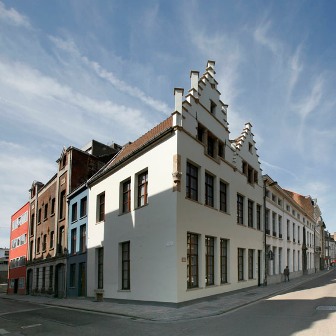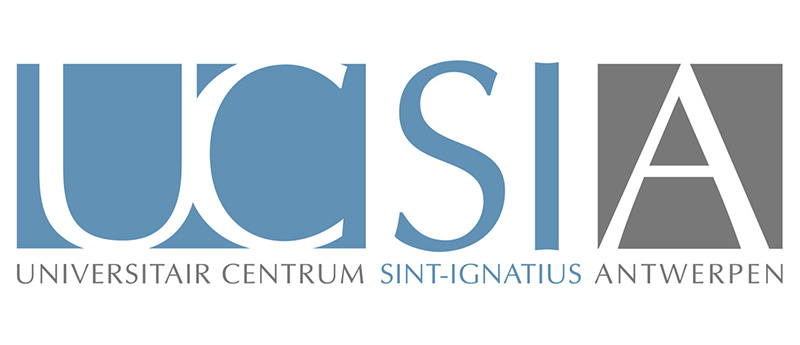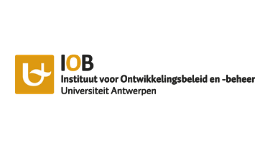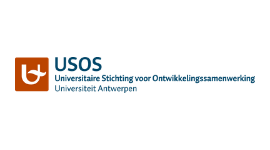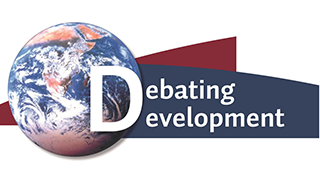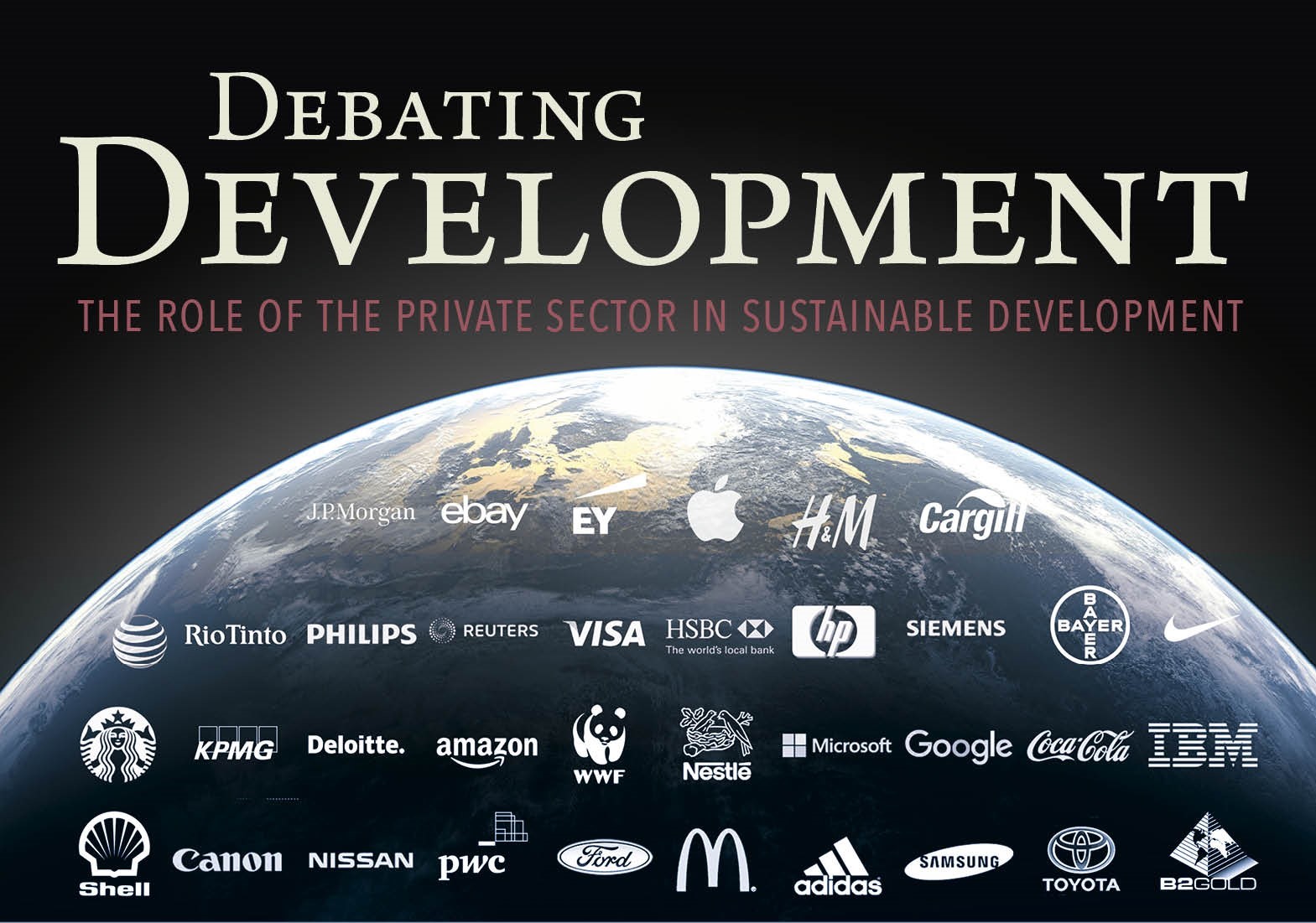
Disruptive Enclaves and Risky Politics:
The Challenges of Making Mining Work for Sustainable Development
On 26 November, this session in the 2019 lecture series Debating Development was devoted to the issue of ‘disruptive enclaves and risky politics: the challenges of making mining work for sustainable development’.
Mining is considered a pariah industry, triggering conflict and civil war. Under three decades of critique the relationship between mining and sustainable development has become strained. Now the sector has responded by actively contributing to the sustainable development goals. Does this signify an ethical shift? Thomas Frederiksen from the University of Manchester, an expert in political settlements and corporate social responsibility in many African countries and in Latin America, addressed the question, while respondent Piet Wostyn from the Sustainable Inorganic Materials Management research cluster at KU Leuven investigated the stakeholder relations between mining companies and local communities.
Mining and Sustainable Development
The mining sector has become bigger and more dispersed since the easy accessible resources have been depleted. It is a waste management industry (97% of distracted material consists of waste). The process requires a lot of water and infrastructure. It is territorially fixed (you cannot move the mine).
This poses problems on the level of environmental sustainability. Many initiatives to tackle the question have been launched, such as the Whitehorse initiative, the Global Mining Initiative, the UN Global Compact, but they strand in a rhetoric based on efficiency, dialogue and partnership. Now attempts are made to integrate the Sustainable Development Goals (SDGs) into the core practice of the business (cf. ‘Mapping Mining to the SDGs: An Atlas’, UNDP, World Economic Forum). The problems with voluntary standards is that they are not mainstreamed (and thus allow for cherry picking the easy ones) and reduce partnerships to subcontracting relationships (such as hiring services of NGOs to tend to these matters). The standards are quite abstract which makes it hard to turn them into concrete results.
Why do mining companies voluntarily adopt international standards (SDGs being the latest)? The motives Fredriksen encountered in his research, based on interviews with managers from the sector, point to ‘bleeding nose’ tactics, escaping local government regulation, obtaining better lending conditions, avoiding litigation, obtaining a competitive edge, enhancing reputation (needed to access fresh capital and new territories). The emphasis on rhetoric and (operational, reputational and regulatory) risk management is the key decision factor in adopting sustainable development standards. It is easier to change image than behaviour. This leads to poor outcomes for the local community and oversimplifying the social world. Environmental sustainability thus serves as a tool for pacification instead of an incentive to change.
Mining and National and Local Development
Mining and national development are not easy to match when the basic material is a gift of nature, enforcing the paradox of plenty: it procures wealth without economic development, undermining political legitimacy. Mining works in an economic enclave without links to its surroundings. On the level of local development, it rather brings environmental degradation, dust and pollution, disrupting livelihoods (e.g. by overuse of scarce water resources) and induces economic migration by providing job opportunities, while dispossessing local landowners. This is evident in the case of Zambia that relies for 70% of its national income on earnings from copper (which makes it strongly dependent on mining), while the poverty rate of its population is over 60% (making it one of the poorest countries in the world). This has not lead to conflict but it does offer a case study for corruption, without any form of monitoring.
Tomas Frederiksen’s presentation
Mining and National and Local Development
Mining and national development are not easy to match when the basic material is a gift of nature, enforcing the paradox of plenty: it procures wealth without economic development, undermining political legitimacy. Mining works in an economic enclave without links to its surroundings. On the level of local development, it rather brings environmental degradation, dust and pollution, disrupting livelihoods (e.g. by overuse of scarce water resources) and induces economic migration by providing job opportunities, while dispossessing local landowners. This is evident in the case of Zambia that relies for 70% of its national income on earnings from copper (which makes it strongly dependent on mining), while the poverty rate of its population is over 60% (making it one of the poorest countries in the world). This has not lead to conflict but it does offer a case study for corruption, without any form of monitoring.
Mining and Corporate Social Responsibility (CSR)
Given the uneven application of international standards, the focus on risk management, the effects of mining as an enclave economy, disrupting local environments and entrenching inequality, the sector should reflect on the values of corporate social responsibility.
What if mining took this seriously by insisting on cleaner production methods, accepting limits to exploitation, embracing recycling, admitting tradeoffs, embracing transparency and systematic monitoring and accepting external regulation? The incentives for the industry should be changed.
Social License to Operate (SLO)
Respondent Wostyn inquired whether mining could eventually stimulate sustainable development. The answer depends on what kind of mining and what kind of management. The focus should be on the management of economic, social, environmental, political and cultural impact. The SDGs should be embraced as a whole or we risk falling out of issues of gender equality and the like.
We should take into account the context. The minerals that are being mined the most intensively are non-metallic minerals, foremost sand. We mainly talk about carbon extraction, but underestimate the costs of the transition to a low-carbon economy.
Piet Wostyn’s presentation
We are depleting our resources, while consumerism and capitalism increase our need for materials. This requires us to question our needs. Our recycling efficiencies are poor (UMICORE is a leader in this field, but even then), technological advances are slim, process economics (recycling waste as new resources instead of landfill) are limited, regulations on waste transport are lax.
Mining has a bad reputation. The sector wants to prove that it has improved (through a discourse on renewable energy), but it is in denial. Has the mining sector changed? The picture is very mitigated. There are signs of development from pure profit making to targeted mining of resources for specific applications and more shareholders are being involved in controlling the value chain. Given the fact that access to ores becomes more difficult due to depletion of the easy accessible mines, the sector is evolving from very labour intensive to more capital intensive; the phase from exploration to exploitation has become longer (return on investment is slow) and procedures have become more bureaucratic within the EU. Europe is strongly dependent on import of ores, e.g. 80% of cobalt needs are met by imports from Congo. A main governance challenge is to obtain a social license to operate (SLO), which refers to the ongoing acceptance and/or approval of an industrial activity by a set of relevant stakeholders. It is increasingly conceived of as a real business risk.
Discussion
The ensuing discussion focused on the way community concerns can be voiced. Benefit sharing requires capacity building so that local knowledge might be included. It should be seen as an asset. Communities do not need to phrase their concerns in terms of risk to make themselves understood, but comprehending what the mining business means by it is useful.
The relation between companies and governments was questioned. When companies take over public services (like building schools …) this has an impact on the legitimacy of governments. It can weaken already weak governments. Companies should instead pay their taxes and push the government to deliver the public services. They could decide together with the local community what to ask from the government.
How best to monitor the mining business? Through the government or the community? This is handled differently in different countries. In Finland only one person is in place to oversee the whole field. If monitoring is to be taken seriously the government should invest in it. The Ghanaian government does monitor mining thoroughly on an annual basis. In Tunisia the impact is measured in front of the people to reduce conflict potential and discuss the real impact together. There is extensive literature on community monitoring (e.g. on water in Latin American communities).
Is it realistic to expect mining companies to take the SDGs seriously? They played a role in formulating the SDGs, so they ought to be able to change. External and internal incentives need to be aligned. Many companies are convinced that they are doing a good job in delivering the materials for the world of tomorrow. Environmental NGOs are not considered a valuable stakeholder, though. The sector is very defensive because it has been under attack for a long time. They need external support to contribute to sustainable development.
Other lectures in this series:
- 22 October: Corporate Social Responsibility and Business Ethics
- 29 October: Illicit Financial Flows
- 5 November: Philanthropy
- 12 November: Securitization and Conservation
- 26 November: Mining and Political Settlement Processes in Africa
- 10 December: Degrowth – Green Growth
For more information on the entire series, we kindly refer you to the website of Debating Development.
In cooperation with:
IOB
instituut voor economische, politieke en sociale aspecten van ontwikkelingsbeleid en -beheer

Universiteit Antwerpen
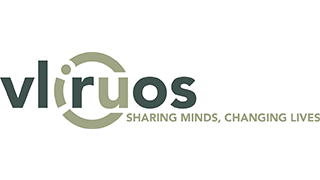
Vliruos
USOS
Universitaire Stichting voor Ontwikkelingssamenwerking
Debating Development
Universiteit Antwerpen
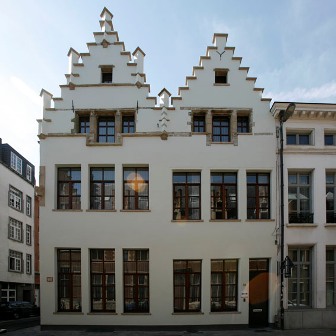
UCSIA
Koningstraat 2
B-2000 Antwerpen
info@ucsia.be
Tel. +32 (0)3 265 49 60
Voorlopige locatie tijdens de renovatiewerken:
Blindestraat 14, 2000 Antwerpen
